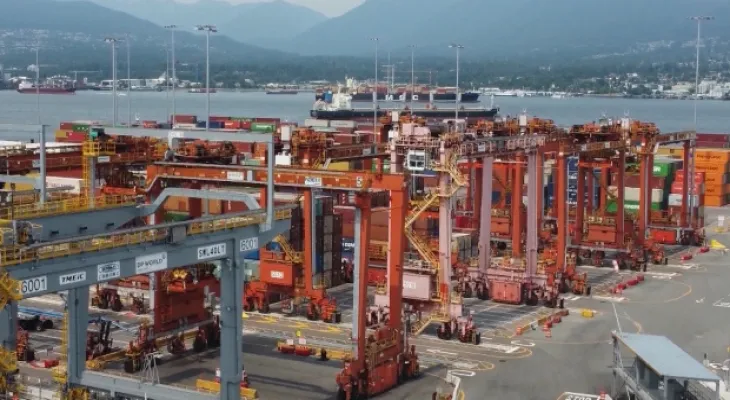Search here
Newspaper
Search here

Arab Canada News
News

Published: July 29, 2023
The port workers in British Columbia voted to reject a mediated contract offer, leading to an extension of job actions that prevented billions of goods from moving for nearly two weeks earlier this month.
In a message posted on the union's website, International Longshore and Warehouse Union Canada President Rob Ashton said, "Workers are now calling on employers to come to the table and negotiate directly, rather than doing so through the British Columbia Marine Employers Association."
On the other hand, the British Columbia Marine Employers Association stated in a statement, "It is disappointed that the proposed four-year agreement has been rejected, describing it as a good deal that recognizes the skills and efforts of the British Columbia waterfront workforce while providing certainty and stability for the future of Canada's west coast ports," and the association is awaiting further guidance from the federal government regarding next steps.
The association's statement revealed details about the rejected four-year package, saying it included a 19.2% wage increase, a signing bonus of $1.48 per hour worked to be paid to each employee (equivalent to about $3,000 for each full-time worker), and an 18.5% increase in a one-time retirement payment for modernization and mechanization.
The association stated, "This would increase retirement payments in 2026 to $96,250 for eligible retired employees, in addition to pension benefits for employees," adding that the 19.2% wage increase would have raised the average longshore union compensation from $136,000 to $162,000 annually, not including benefits and pensions.
It was also reported that the deal included measures to improve the training, hiring, and retention of International Longshore and Warehouse Union workers, and the association agreed to provide benefits coverage for all casual maritime workers, a new tool allowance, and a commitment to increase apprentices by no less than 15%.
The deal reached with federal mediators had temporarily halted a 13-day strike that began on July 1, but its fate swung violently as it was subsequently rejected by union leadership, which attempted to return to picket lines.
When the Canadian Industrial Relations Board deemed that illegal, the union issued a new 72-hour strike notice, only to withdraw it hours later.
On July 20, the union announced that it recommends the deal and will present it for a full membership vote.
Its failure will give momentum to calls for the federal government to introduce back-to-work legislation, which came earlier from industry groups and politicians, including Alberta Premier Danielle Smith.
The previous job action was serious enough that Prime Minister Justin Trudeau convened the government incident response group to discuss the matter, an event typically reserved for moments of national crisis.
The rejection raises the possibility of back-to-work legislation to end uncertainty at over 30 port terminals and other sites, including Canada's largest port in Vancouver.
The four-year agreement between the union and marine employers was voted on by approximately 7,400 workers on Thursday and Friday, after union leaders presented the deal to local branches on Tuesday.
Comments